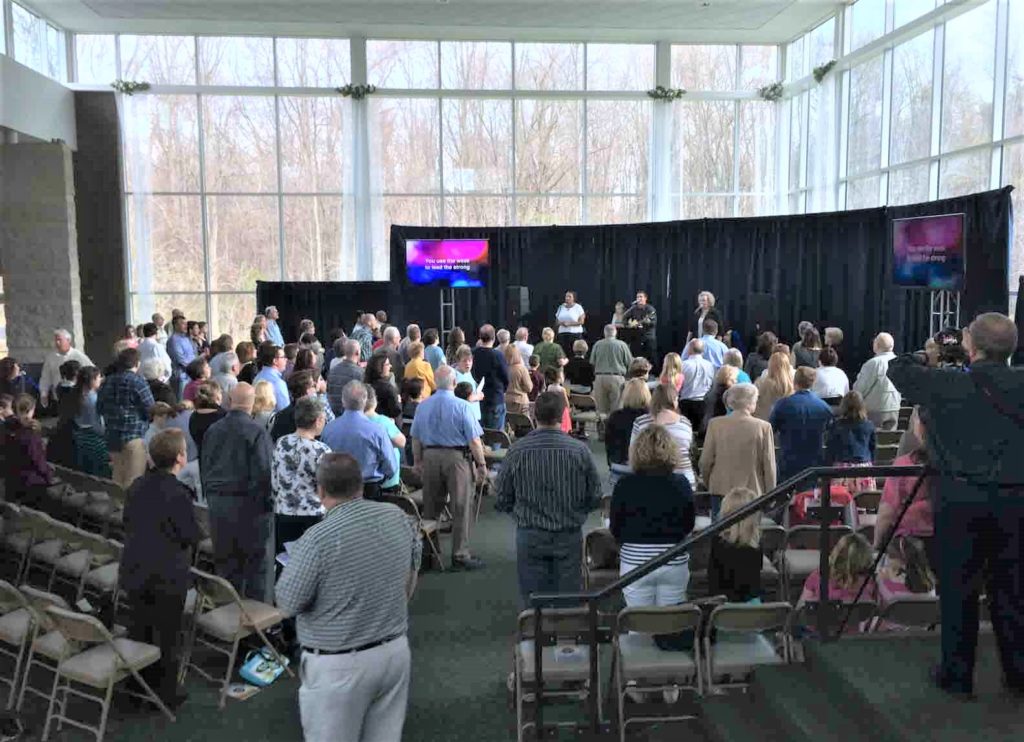Make your church-planting journey easier by spending time learning about where to plant a church.
Your church is blessed and has an abundance of volunteers and leaders who are driven to widen the reach of the gospel. Your church has been directed to plant a new church, but how do you determine where to plant a new church?
This is a scenario commonly seen when it comes to church planting.
CAN’T WE JUST PLANT A CHURCH ANYWHERE?
Deciding where to plant a church takes time and research. It’s like a pastor writing a sermon: they take care in asking God what message needs to be heard, they seek guidance from God, and they consider what messages have been spoken before.
It’s the same when you look into planting a new church. Ultimately, God must guide your leadership team to where He wants a new church planted. But it also helps to be well-studied in the realms of church planting and what has been advised by the people who have walked this road before you.
There are extensive resources that provide valuable information on this topic. But to set you on the right path, there are three points that should be considered.
Planting Perks: 5 Benefits of Starting a New Church

Where Should You Plant a Church?
1. Is the soil prepared?
A great vision, deep faith, and an abundance of money are not the deciding factors on where a church should be planted. Indeed, these three factors are important, but the most important factors to be considered are:
- Is the area spiritually receptive?
- Does your church have a social network in the area?
- Does the leader of the new church have local knowledge and relationships in the new area?
If the answer is “yes” to all of these factors, this means that your church and its leaders are very familiar with the potential area and it is likely that the choice you make will be well-informed.
If you can’t answer “yes” to these, don’t be discouraged. This either shows that you need to do more research and spend more time in this area, or that it may not be the right area to plant in.
Never undervalue your hometown or a place where you have spent a lot of time. Often, people are tempted to seek adventure and plant a church far away from everything and everyone they know. But God uses what you have and what you know – so don’t forget about the area and the people you already know.
Never undervalue your hometown or a place where you have spent a lot of time. Often, people are tempted to plant a church far away from everything and everyone they know. But God uses what you have and what you know. Click To Tweet2. Plant a church in a strategic place.
Have you and your leadership team spent time building a strategy for reaching an entire region with the gospel? This is something you should do because it will help you plan where to plant a church.
Working with a strategy will mean that you consider a large region that God has shown you needs more churches, and within that region, you will research the best areas to establish a church. You can imagine the well-known movie scene of a map on the wall with red pinpoints in a certain area, identifying ideal places.
Of course, your map points may be a bit different from where God leads you in the end but there will be a good framework in place to work from.
3. Launch a church where a venue is available.
This point’s title can make it sound like we suggest that you take any old venue that is available and rent it.
No, this is not what we mean.
What it does lead to is the importance of remembering that God will lead you to an area, and it may not be the exact place you had identified. Often, God uses the available venues to show us where to plant a church. Many church planters have walked the streets of their ideal area, knocking on doors that close in their faces, only to find that God wanted the church to be over the road, across the train track, or even in the next town.
In a nutshell, have your plans but hold them loosely and ask God to guide your searches.
For you: 10 Valuable Resources for Portable Church Leaders
FLEXIBILITY IS KEY WHEN YOU PLANT A CHURCH
If you are not flexible when church planting, you’ll most probably run into a lot more challenges than if you prioritize adaptability from the beginning.
As Christians, we already know that God’s plans can be surprising and take turns that we can never anticipate. And this is the case when you plant a church, too. We can have our plans, we can pave the way, but oftentimes, we need to look at ‘plan B’ or take a moment to ask God, “What do you want?”
What will help you tremendously is to set aside time to listen and read about what others have learned on their church-planting journeys. What do the experts say? How can you avoid some common pitfalls?

































































